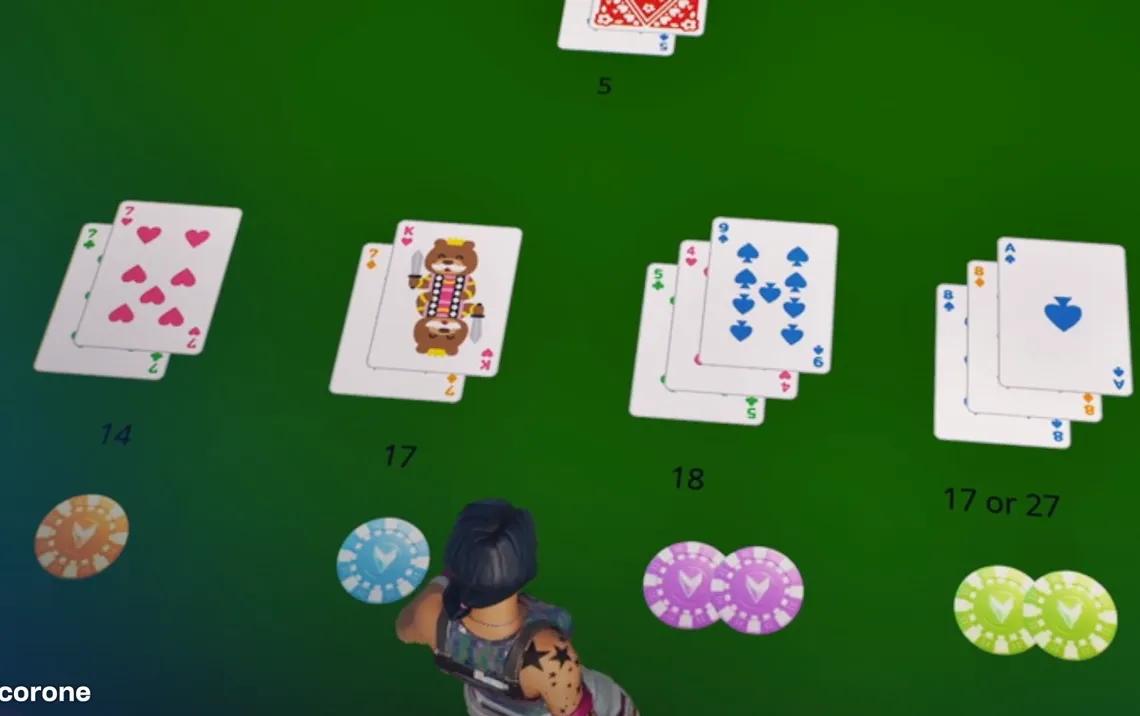Epic Games Denies Gambling Is Coming To Fortnite After Leak Sparks Controversy
Epic Games has issued a statement addressing player concerns following rumors that gambling mechanics were on their way to Fortnite. The company clarified that no such system is planned and that any form of gambling would violate the game’s creation policies. The clarification came in response to a widely circulated leak suggesting that paid random items—effectively loot boxes—might soon be integrated into Fortnite’s player-made content.
The controversy began when Fortnite insider ShiinaBR, citing internal data shared with Insider Gaming, claimed that Unreal Editor for Fortnite (UEFN) creators would soon be able to include “paid random items” in their maps. These items, according to the leak, could be purchased using V-Bucks, the in-game currency that is itself bought with real money. The revelation prompted immediate backlash from players wary of gambling-like systems returning to mainstream games.
The leak included details that mirrored traditional loot box models: items available for purchase without guaranteed outcomes, the requirement to display odds, and regional restrictions in markets where loot boxes are banned. Belgium, for instance, outlawed paid randomized rewards in 2018, forcing companies like EA and Blizzard to modify or remove their systems altogether.
Epic responded swiftly. In a statement to TheGamer, the company said gambling is “not coming to Fortnite,” and that creators are “not allowed to include gambling as a part of their islands” because it would breach developer rules. The studio, however, made one important distinction. According to an Epic spokesperson, developers “may add paid random mechanics in regions where permitted,” provided they clearly indicate which items are randomized and disclose the odds before purchase.
That distinction between gambling and “paid random mechanics” is the heart of the discussion. The former would trigger regulation under gambling law; the latter remains a gray area. By labeling them as random mechanics and enforcing transparency, Epic positions Fortnite within the same regulatory framework that allows games like EA Sports FC to continue selling Ultimate Team packs. EA’s own description of loot boxes as “surprise mechanics” in 2019 remains one of the most criticized examples of such framing, but it effectively established a legal precedent.

The issue resurfacing in Fortnite brings the debate back into focus. Loot boxes, once a defining controversy of the late 2010s, have receded from public debate but never disappeared. A 2022 study linked them to financial and emotional harm in younger players, prompting the European Union to urge tighter restrictions the following year. The idea that Epic could reintroduce a similar mechanic, even indirectly, struck a nerve.
Epic’s clarification, then, is not merely a denial—it’s a statement of intent. By keeping the language of compliance while rejecting any association with gambling, the company seeks to reassure players and regulators alike. Yet for many, the reassurance is partial. The allowance for “paid random mechanics” still permits creators to sell randomized digital rewards using real-world currency, which, for critics, is a distinction without much difference.
Fortnite has long blurred the boundaries between commerce and play. From its endless stream of crossover content to its ecosystem of user-made islands, the game thrives on player spending within structured systems. The idea that randomness might now be monetized inside player-created content—albeit under transparent odds—suggests a new phase of Fortnite’s evolution, one that will test the limits of its economy and the patience of its community.
For now, Epic’s statement maintains that gambling is off the table. Whether players will accept that assurance may depend on how those “random mechanics” function once they reach the live game. The difference between monetized chance and outright gambling may be technical, but in practice, it will be judged by the experience of players themselves.
Read also, Fortnite Rumored to Add Massive Warner Bros. Game Mode in December, as new reports suggest Epic is preparing a crossover event to launch alongside Chapter 7, introducing a fresh map and a major themed mode just weeks after the hit Simpsons mini-season.
5 Free Cases, Daily FREE & Welcome Bonuses up to 35%

3 free cases and a 5% bonus added to all cash deposits.


EGAMERSW - get 11% Deposit Bonus + Bonus Wheel free spin
EXTRA 10% DEPOSIT BONUS + free 2 spins
3 Free Cases + 100% up to 100 Coins on First Deposit


Comments